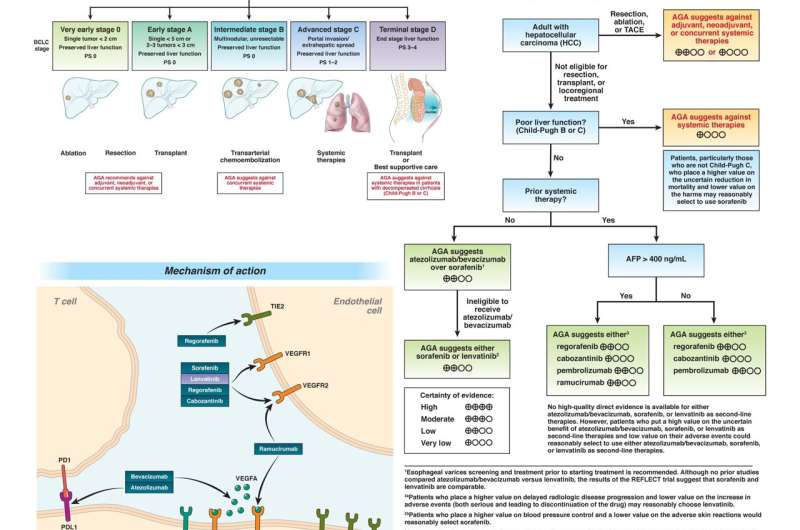AGA recommends shared decision-making approach for treatment of hepatocellular carcinoma

Hepatocellular carcinoma (HCC), the most common form of primary liver cancer, remains a deadly cancer with an incidence that has tripled in the United States since 1980. Individuals with HCC often present at an intermediate or advanced stage when decisions regarding systemic therapy are critical. Within the last few years, several new and novel FDA-approved treatments have become available, offering hope to patients with advances disease who are not candidates for curative surgeries. The American Gastroenterological Association (AGA) has conducted a detailed review of all available literature to provide the most up-to-date clinical guidelines on the use of systemic therapy in the treatment of HCC. These guidelines were published today in Gastroenterology, AGA's official journal.
The guideline was developed to not only guide hepatologists through care and treatment of their HCC patients, but also to highlight the importance of consulting a multidisciplinary team of health care professionals—including radiologists and oncologists—when developing a treatment plan.
"Deciding the best treatment for your liver cancer patient is not a one-doctor decision," said lead author Grace L. Su, MD, from the University of Michigan Health System, Ann Arbor, Michigan. "Our hope is that this new guideline empowers GI doctors to build relationships with multidisciplinary providers, such as oncologists, that will ultimately determine the best individualized treatment for their patients."
Top guideline recommendations
- Systematic therapies are only recommended for patients with advanced (stage C) HCC with preserved liver function. Atezolizumab/bevacizumab are recommended as first-line treatments over sorafenib.
- Patients with early stage HCC (stage 0 and A) who are candidates for ablation, resection or transplant should receive curative surgery instead of systemic therapies.
- Patients with intermediate HCC (stage B) should receive transarterial chemoembolization as first-line treatment.
- Terminal patients (stage D) should not receive systemic therapy. AGA recommends transplant or best supportive care.
More information: Grace L. Su et al, AGA Clinical Practice Guideline on Systemic Therapy for Hepatocellular Carcinoma, Gastroenterology (2022). DOI: 10.1053/j.gastro.2021.12.276

















